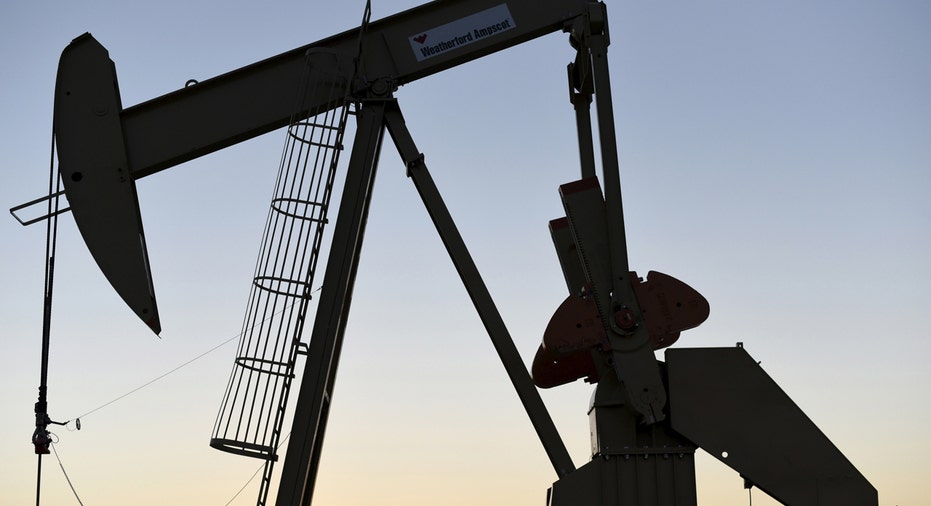Oil Prices Slide, as Persistent Oversupply Trumps Other Concerns

Oil prices fell Monday even as tensions flared in the Middle East, the latest twist in a market overwhelmed by crude supplies.
In a day of volatile trading, oil futures at first soared on news of a diplomatic rift between Saudi Arabia and Iran that was sparked by Saudi Arabia's execution of a Shiite cleric. But the rally fizzled on new signs that the supply glut that pushed prices down more than 30% last year is growing.
Monday's decline illustrates how unrest in the Persian Gulf, the world's largest oil-producing region, has lost its potency at a time when there's close to a record amount of crude available in storage and continued robust production in the U.S.
Saudi Arabia and Iran are two of the largest producers in the Organization of the Petroleum Exporting Countries, and increased tensions between the two nations could add to the discord within OPEC that has prevented the group from agreeing on a strategy to stabilize oil prices.
Adding to concerns about the persistent glut of crude was a reading out of China showing the 10th straight month of contraction in the country's manufacturing sector. The data sparked concerns that oil demand in China, the world's second-largest crude consumer, could slow.
"We're still swimming in supply," said Adam Wise, managing director at John Hancock Financial Services who helps oversee about $7 billion in energy-related debt and private-equity investments. "Everybody's looking at activity in China and Chinese demand as a harbinger of what's to come for commodity prices in the near term."
Spreading sectarian protests due to rising tensions between Saudi Arabia and Iran could increase volatility in the oil market in the coming weeks as investors assess the impact on crude supplies. While unrest in the region increases the risk of production outages, some analysts say the tension is more likely to add to the global glut of crude oil as the two producers compete for market share, weighing on prices.
Light, sweet crude for February delivery fell 28 cents, or 0.8%, to $36.76 a barrel on the New York Mercantile Exchange. Brent, the global benchmark, fell 6 cents, or 0.2%, to $37.22 a barrel on ICE Futures Europe.
More than 18 months into the crude-price rout, oil production remains high around the world. The U.S. Energy Information Administration on Thursday said that domestic oil production was higher than previously reported in each of the first nine months of 2015.
On Monday, data provider Genscape Inc. told clients that crude-oil stockpiles in the key storage hub of Cushing, Okla., rose to a record high in the week ended Friday. Ample Cushing supplies in the past year have sparked some concerns that Cushing, which is the delivery point for Nymex futures, could run out of storage space for oil.
Two-thirds of the increase in Cushing storage in the six weeks ended Jan. 1 can be attributed to refiners and other storage users shipping more crude to Oklahoma and less to Texas, probably because they wanted to avoid year-end state taxes on inventories held in Texas, said Genscape analyst Hillary Stevenson. In the coming weeks, she said, "we could see Cushing start to drain off the highs."
Some oil analysts and investors have argued for months that the low price of crude doesn't adequately account for a possible supply disruption due to violence or unrest. The oil market has been vulnerable to sharp rebounds in recent months as traders who had bet on lower prices quickly reverse course.
Hedge funds and other money managers have held high numbers of bets in recent weeks that oil prices would fall, according to the Commodity Futures Trading Commission. Increased concerns about geopolitical conflicts could have prompted some traders to close out their bearish bets.
Saudi Arabia produced 10.2 million barrels a day of crude oil in November, or about 11% of global output of crude and related liquids, according to the International Energy Agency. Iran produced 2.9 million barrels a day of crude that month.
The recent strife between the two nations lowers the likelihood that OPEC, which hasn't cut production in the past two years despite low prices, will take action in 2016.
Iran is expected to increase its output by hundreds of thousands of barrels a day this year if international sanctions on the country are lifted, and Saudi Arabia has already expressed its unwillingness to cut production to make room for Iranian barrels. The heightened tensions with Saudi Arabia could encourage Iran to accelerate its production increases, analysts said.
"There's no intention of reducing the amount of oil that's being produced, at least by the Saudis and a lot of the Middle East," said Scott Thompson, chief investment officer of hedge fund strategies at Ford Rock Asset Management in Portland, Ore., which manages $100 million. "We're seeing the glut of oil being produced and the spigots not being slowed down."
Gasoline futures settled up 1.97 cents, or 1.6%, at $1.2907 a gallon. Diesel futures rose 0.25 cent, or 0.2%, to $1.1264 a gallon.
By Nicole Friedman



















